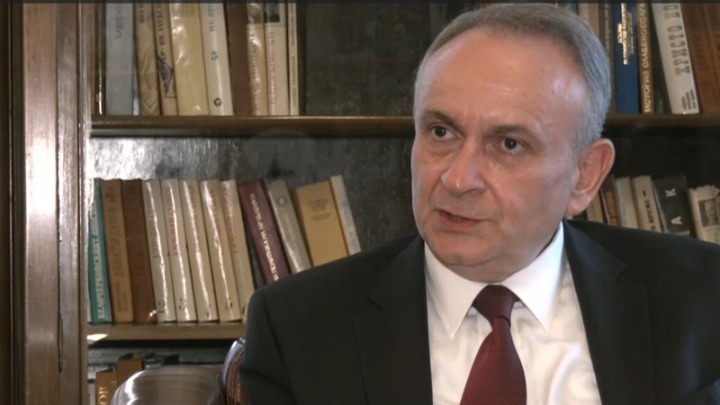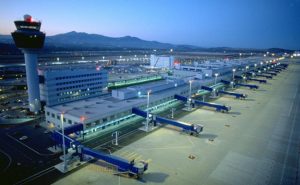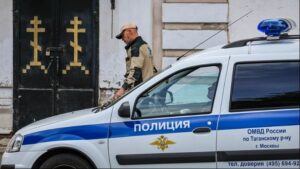The strategic partnership between Greece and Bulgaria constitutes a pillar of stability and promotion of EU values for the whole region, stated Bulgarian Ambassador Valentin Poriazov to Athens-Macedonian News Agency on Sunday. The Bulgarian Ambassador also expressed his will for the deepening of the bilateral relations and the certainty that the two countries can become a major energy and transport hub of pan-European magnitude. As he explained, the strategic bilateral cooperation in several sectors as energy, transport, communications, trade and technology are necessary for the economic prosperity of the two countries as well as for the geopolitical stability of the entire region. The full interview with Athens-Macedonian News Agency and journalist Dimitris Manolis follows:
What is the importance of our bilateral strategic cooperation on interconnectivity for Greece, Bulgaria, and the wider region?
Bulgaria and Greece are faced with a range of identical risks stemming from our challenging regional context, most notably the Russian aggression against Ukraine, the dramatic situation in the Middle East, the migration flows or the impeded supply chains, to name a few.
However, our two countries have a complementary geography, thus enhancing and emphasizing the qualities of each other. This creates enormous advantages to tackle the risks and challenges we face. Even more importantly, we share the same values, based on international law, justice, liberty and human rights. We are partners in the EU and allies in NATO. Our strategic partnership represents an axis of stability for the whole region.
The Russian aggression against Ukraine and its repercussions for the overall security of Europe, the Balkans and the Black sea region included, has helped us realize more clearly than ever the true potential of our bilateral relations.
Our shared history spans over more than thousand years, making us an unique example in Europe. We should tap into the maturity of our relations and stay true to the wisdom of the politicians, diplomats and ordinary people who throughout the last few decades endeavored to overcome the shadows of the past and succeeded in building mutual trust, respect and confidence.
So, I believe that it is our duty to make full use of all these advantages and deepen our cooperation even more if we are to withstand the adversities of our time.
With common will and joint efforts, our two countries can become a major energy and transport hub of pan-European magnitude.
Our strategic cooperation in various areas such as energy, transport, communications, trade and technology is indispensable for our economic prosperity, but also for the geopolitical stability of the whole region. It has already proven decisive when the war in Ukraine broke out. Together, we can protect our European way of life.
What is the significance of the Sea2Sea project and how would you assess the progress achieved so far?
Sea2Sea is a pivotal project of big geostrategic, economic and logistic value for Greece and Bulgaria, with long-term positive consequences for the wider region. It envisions a modern multimodal corridor stretching from the port of Thessaloniki, through Kavala and Alexandroupolis in Greece, further reaching the ports of Burgas and Varna in Bulgaria, and continuing towards the Danube river and our main port there, Rousse.
The Sea2Sea can offer a much needed alternative to the heavily congested Bosphorus straights. This will enhance freight and passenger traffic between our two countries and will upgrade our economic potential. Bulgaria has a particular interest in its implementation, especially in the context of the blocked trade routes in the Black Sea due to the Russian aggression against Ukraine.
Presently the Sea2Sea is in a development phase but our two countries are collaborating closely to establish a joint venture to manage the project. Together we are working for its inclusion in the program of the Connecting Europe Facility (CEF II).
Bulgaria has a substantial part of the necessary infrastructure in place. Greece is already working on its part by constructing the new Thessaloniki – Toxotes railway line. Furthermore, your government has undertaken practical steps to upgrade the existing cross-border rail line between Alexandroupolis and Ormenio, as part of the Sea2Sea.
Our governments have realized the mutual benefits and advantage, which will follow the completion of the Sea2Sea project and therefore we share the political will for its completion without further delays. Now is the time to act decisively in order to achieve something truly significant and valuable for us and the whole region.
The S2S and the Vertical corridor, linking Greece-Bulgaria-Romania, are examples of the far-reaching potential of our partnership within the EU, creating also the necessary prerequisites for the economic reconstruction of Ukraine when the war is over.
How do you assess the synergy between our countries in the energy sector in the context of the IGB? Can the upcoming operation of the Alexandroupolis Floating Storage and Regasification Unit (FSRU) be a game changer?
The gas Interconnector Greece-Bulgaria is an example of a strategic long-term investment with a broad regional scope. It serves as an inspiration for new sustainable investments. The same applies to the project for a floating LNG terminal near Alexandroupolis, in which Bulgaria participates with a 20% stake and which will be operational in the next couple of months.
Thanks to our continuous joint efforts, we are moving ever closer to achieving our strategic goals, namely the diversification and sharing of energy sources, infrastructure upgrading and integration, but also the implementation of renewable energy initiatives to reduce our dependence on fossil fuels and mitigate environmental impacts.
The new FSRU, combined with the existing gas interconnectors between Greece and Bulgaria, will significantly enhance the energy security not only of Greece and Bulgaria but also in the broader region by providing access to new sources of natural gas. It will attract long-term investments in the energy infrastructure of the region and will support supply chains, logistics, shipping and transportation of LNG.
The FSRU Alexandroupolis is located strategically along key LNG routes between three continents. If we consider the evolutionary trends of the global LNG trade and the proximity to emerging local and regional markets, we can confidently say that Greece and Bulgaria stand to capitalize significantly on their strategic cooperation in the medium-to-long term.
What is your assessment of Bulgaria’s participation as the country of honor in the last Thessaloniki International Fair (TIF), and what impact does it have on Greek-Bulgarian economic and business relations?
The invitation to Bulgaria to be the honoured country at TIF last year was a highly appreciated gesture. Our participation has gained significant visibility with the broad public in both countries. The TIF proved once again the strength, traditions and increasing interest in the intensification of our bilateral trade relations. Companies from both countries can benefit significantly if they jointly search for new market niches, but also from a common presence in third countries’ markets.
In 2022, the first year of the war in Ukraine, our trade exchange has reached 6 billion euros.
Greek investments are present in a number of sectors in Bulgaria and they are an intrinsic part of our economy.
What is the current Greek business presence in the Bulgarian economy and what are the prospects for strengthening it in various sectors?
As I mentioned, the Greek business presence in Bulgaria has long lasting traditions based on sustainable investment opportunities. Major Greek investors have long been operating in Bulgaria, making use of the favorable business environment, incl. fiscal policy, operational costs, etc. The list of the current Greek businesses present in Bulgaria is quite extensive, incl. Fourlis Group (with IKEA & Intersport), Helleniq Energy (with EKO Bulgaria), Viohalco Group, TERNA Group, Mytilineos Group, Eurobank, Kamaridis Group, ETEM, Accenture, TITAN Greece, ION (Interion), Chipita Bulgaria, Loulis Mills and many more.
The major infrastructural projects that we realize today for enhancing the interconnectivity between our two countries will definitely help our bilateral economic and trade collaboration increase even further.
New sectors of potential Greek-Bulgarian business cooperation are IT & communications and automotive industry. There are serious prospects for cooperation in the field of start-up companies, data centers and digital connectivity.
In the immediate future, efforts should be made to attract investments in both countries in high-tech production and services with medium and high added value (technological centers for operational, strategic, consulting and business design services).
How do you assess the cooperation between Bulgaria and Greece for the accession of the Western Balkans to the EU, but also for regional stability and security?
The European perspective of the Western Balkans is yet another dossier where Bulgaria and Greece share many commonalities. The accession process, with the ensuing reforms, has proven to be the main driver for democratic transition and stability, which is certainly in our common interest as immediate neighbors.
Greece has organized the Thessaloniki Summit in 2003, whereas Bulgaria, following a hiatus of 15 years, organized the next EU-Western Balkans Summit during its Presidency of the EU in 2018. It was only natural that of all member states, Bulgaria and Greece were the ones to bring the Western Balkans back on the EU’s agenda.
The new geopolitical realities, following Russia’s aggression against Ukraine, have prompted an increased focus on EU enlargement with landmark decisions recently taken, inter alia to start accession negotiations with Ukraine and Moldova, and others pending for this year. Yet, while geopolitical considerations are well founded, the accession of new members to the EU has far-reaching ramifications for the Union. Therefore, a number of criteria need to be met before accession.
Bulgaria and Greece, being most knowledgeable of the region, can work together to help strike the right balance between the expectations for an accelerated integration and the necessity for candidates to meet the criteria and demonstrate their own merits. Two areas of specific importance where the own-merits’ principle is especially valid are the good-neighborly relations and the rule of law.
Bulgaria and Greece share the imperative for the full and bona fide implementation of international treaties, as well as for the observance of the human rights of their respective communities in the Western Balkan countries. These fields relate to the observance of EU values and principles and should not be perceived as merely bilateral.
I am deeply convinced that a strong potential exists to gradually transition from identical positions to coordinated initiatives in the region. This is a necessity arising from the role that Greece and Bulgaria share as an axis of stability and promoters of EU values in the region.
Do you share Greece’s objections to Albania’s EU accession process regarding the issue of the elected mayor of Himarra?
There is a requirement for all candidates to abide by the pre-accession criteria, including the rule of law and the protection of human rights.
Beyond the specificities of the case you mention, decisions in the field of EU enlargement are taken by unanimity. Greece is far from being the first, nor the last one to raise a specific objection on a specific case.
In the long-term, unanimity requires all member states and candidates to go the extra mile in finding a compromise – and compromise is the European way of doing things. In this case as well, I am convinced that a compromise, definitely based on EU values, is possible.
From a wider perspective, we are all interested in seeing the Western Balkan countries, including Albania, progress on their way to EU membership.
Bulgaria has been providing military, humanitarian and political support to Ukraine since the beginning of the Russian offensive. How does this support affect Bulgaria’s relations with other countries, and what are its intentions for the future? Furthermore, how does Bulgaria envision the end of the war?”
Bulgaria has been providing support to Ukraine in various forms from the very beginning of the Russian aggression. Bulgaria hosted the largest community of Ukrainian refugees per capita in 2022. State institutions, private companies and the civil society quickly mobilized to try to offer accommodation to those fleeing the war.
Bulgaria has been providing ammunition and other equipment, in accordance with its capacities, while Bulgarian defense industry companies played a crucial role in bridging the supply gaps in various areas.
Simultaneously, Bulgaria joined all EU sanctions against Russia, despite the negative impact on our economy. Our position of principle remains that the war in Ukraine is not just a bilateral conflict but a fight for the rules based international order and the security of Europe as a whole. Regrettably, with regard to the sanctions we have to note that not all of our neighbours share the same position.
We have clearly stated that we will continue to stand by Ukraine’s side for as long as it takes. I would like to take this opportunity and announce that Bulgaria will organize in close cooperation with Ukraine the Second Black Sea Security Conference in Sofia on 17th April 2024. It is in the framework of the International Crimea Platform (ICP).
Once the war is over, the reconstruction of Ukraine will require significant resources and better connectivity between all EU member states. This is a field where the trilateral cooperation Greece-Bulgaria-Romania on the Vertical corridor (North-South), linking the Alexandoupolis port through Bulgaria and Romania to Ukraine and Moldova, is of crucial importance.
Potential synergies between Bulgaria and Greece may be explored also when it comes to the preservation of the cultural heritage of our respective communities in Ukraine.
Bulgaria has been partially integrated into the Schengen area. What does this decision signify, and do you anticipate the lifting of land border controls by the end of the year? Are there any concerns about an increase in migration flows to your country?
Bulgaria has been complying with all the requirements for full membership in Schengen already since 2011. This has been confirmed repeatedly in the European Commission’s reports. The European Parliament supported our membership in a number of declarations throughout these years.
On 30 December 2023 a compromise proposal has reached unanimity among Member States in order for Bulgaria and Romania to join Schengen. According to it, the air and maritime border checks with Bulgaria and Romania will be abolished as of 31 March 2024. However, the issue of land-border checks remains open. A decision of the Council should be reached in the course of this year.
Bulgaria remains committed to overcome the last remaining political obstacles (raised by one member state only) and reach a subsequent abolition of the land controls as soon as possible. We appreciate the consistent Greek support we have received on our way.
We are already members of Schengen, but the final removal of the land border controls will in fact be most tangible when it comes to the movement of people, goods and services between Greece, Bulgaria and Romania.
The current land border controls run contrary to our common efforts to build a regional transport hub and impede the smooth connections on the South-North axis. They impede our economic and trade cooperation, they generate additional costs for our businesses and tourism.
As regards the migration flows, Bulgaria has been demonstrating on a daily basis its key role in protecting the external borders of the European Union. Full membership in Schengen will allow reallocating resources from the internal to the external borders, resulting thereby in even better protection.
What do you think of the new European Pact on Immigration and Asylum?
Bulgaria and Greece form the EU’s external border in this region and therefore bear a significant, but also disproportionate burden in many respects, including in terms of migration and border protection.
I think that the new Pact on Migration and Asylum, after ten years of difficult debates strikes the right balance between responsibility, flexibility and above all solidarity – the latter being a cornerstone of the new Pact. We have to give tribute to the important role that the Vice-President of the Commission Margaritis Schinas has played in the process.
A number of proposals, supported by Bulgaria, were incorporated in the Pact. We welcome the flexible approach towards the locations where the screening and asylum procedures would take place. The proper calibration of the border procedures in accordance with the administrative capacity of a given member, as well as the possibility to take into account the geographical specificities of each country, are also positive elements of the new Pact.
Overall, I hope that these much needed improvements will help alleviate the deficiencies of the Dublin regulation and will provide for a proper EU response to a challenge which will not disappear and instead needs to be tackled with joint efforts and resources on a long-term basis.







